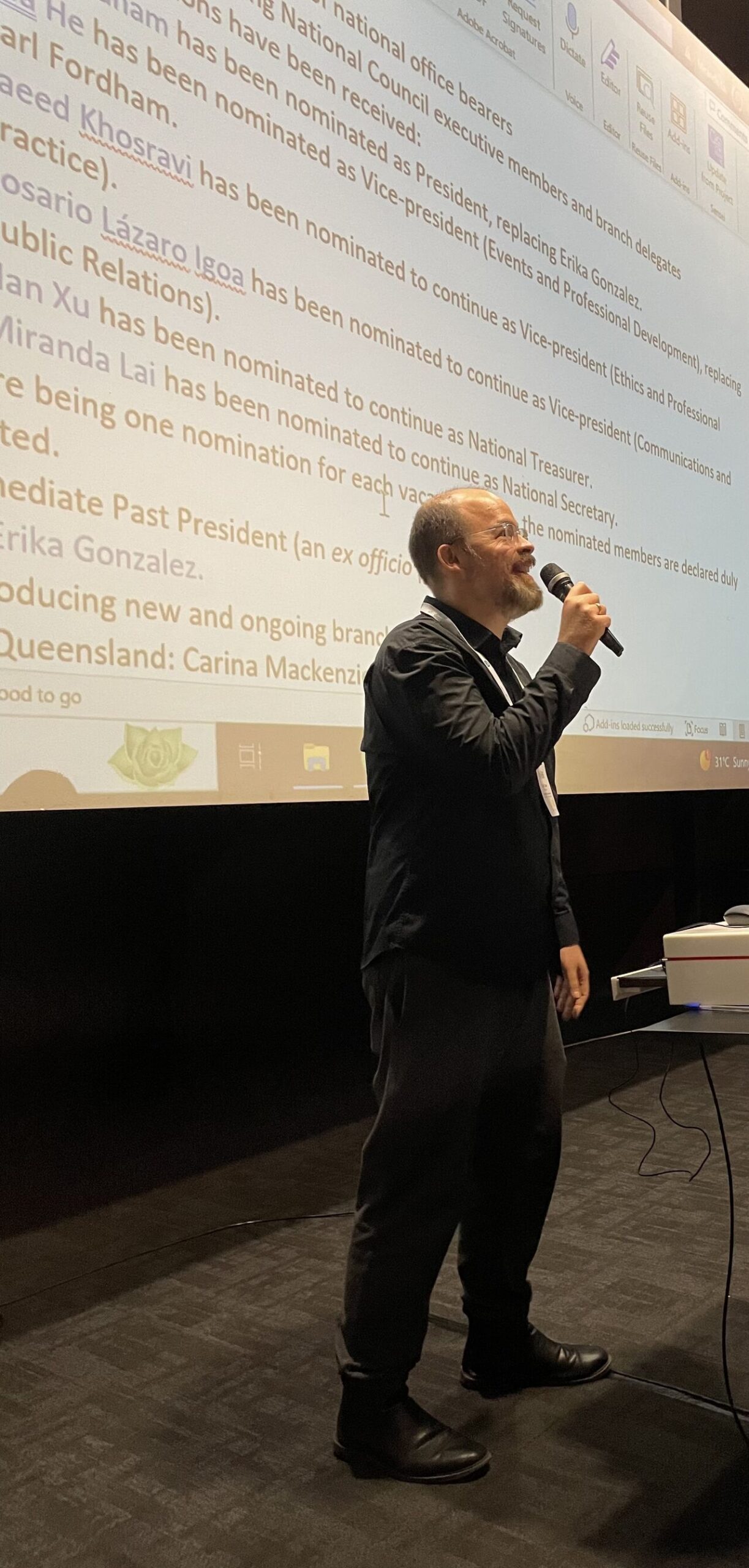
This is the sixteenth interview in our series on the AUSIT members currently filling the roles that keep our professional organisation going … and we’ve at last reached National President! The current incumbent, Carl Gene Fordham, has carved time out of his hectic schedule to tell us more about this role.
Hours per week:
10–15
Voluntary?
Yes
AUSIT member for:
3 years
Time in this role:
1 year
Other AUSIT roles to date: Vice President (Events & PD), 2023–24
Q1: Why did you choose to take on such a big role?
I worked as a freelance translator for many years without ever being an AUSIT member. Finally I decided it was time to give back to the profession that had given me so much. With this in mind, I put my hand up for Vice President (Events & Professional Development). After serving for one year in that role, I was nominated by my colleagues to take up the position of National President. My motivation has always been to continue my commitment to raise the profession. Knowledge-worker sectors like translation and interpreting are facing unique and complex challenges at the moment. It is up to all of us to do what we can to ensure the profession is in a better state than when we entered it.
Q2: Does the role impact on your own work? And if yes: negatively, positively or both?
Being National President of AUSIT has had both positive and negative effects on my day-to-day T&I work. The obvious negative is the juggling I’ve had to do to balance this volunteer commitment with my paid assignments. However, the positives have been significant. Serving on the National Council has given me a unique perspective on the sector as a whole. As a result, I feel like I understand the industry on a much deeper level than I did before. It has also greatly expanded my professional network. I have had the pleasure to make lifelong friends who have been my support during difficult times. Ultimately, these are benefits enjoyed by all who volunteer with AUSIT, either on the National Council, or in their local state/territory branch.
Q3: How much of your time do you spend meeting with industry stakeholders? And who else do you meet with?
I spend about eight hours a week liaising with external stakeholders. However, this number tends to go up quite a bit on special occasions. For example, I recently represented AUSIT at the NZSTI Conference in Wellington. In the crowded industry of translation and interpreting, some of the critical stakeholders for AUSIT are NAATI, LSPs, our Educational Affiliates, the Commonwealth and State governments, Professionals Australia, and of course fellow professional associations like ASLITA, AALITRA and NZSTI. In my view, building and strengthening these relationships is the most important part of the work of National President. While the workload can be overwhelming at times, I am grateful for the assistance I have received from other members of the National Council, as well as colleagues in the Ethics and Advocacy committees. They have been instrumental in ensuring that the voices of practitioners are heard when important discussions are being had about our profession.
Q4: What advice would you give to someone considering taking on this role at some point in the future?
I would advise anyone considering a role in the National Council to reach out to one of us in the first instance. We would be more than happy to explain the roles and responsibilities of the various positions. While some prior experience in the T&I sector and AUSIT more generally is ideal, we also welcome ‘new blood’ – people who can contribute with fresh ideas, skills and perspectives. It is a unique opportunity to make a real and lasting impact on our profession, while boosting your professional skills, knowledge and network.


